Japanese Soba Noodles: My First Taste Test
Soba noodles were my first gastronomic Japanese love from my unforgettable first journey here three years ago. Each time I travel to different destinations in Japan I try to find some local places where I can eat original soba noodles. On my first Japan journey, I really didn’t know much about soba. I just thought it was a kind of brownish Italian pasta in a clear soup. How arrogant and unprepared I was for my first culinary excursion in Japan!
In restaurant recollection, I still remember my first soba meal, which I tried in a tiny hidden place in Jiyugaoka, Tokyo. At that time a friend of mine ordered a nishin soba. I was bewildered and puzzled, as the sweet and tender herring atop a tangle of soba in a hot tsuyu broth was the perfect compliment to a cold January day. At that time I truly fell in love with soba, and I keep my unconditional love to this day.
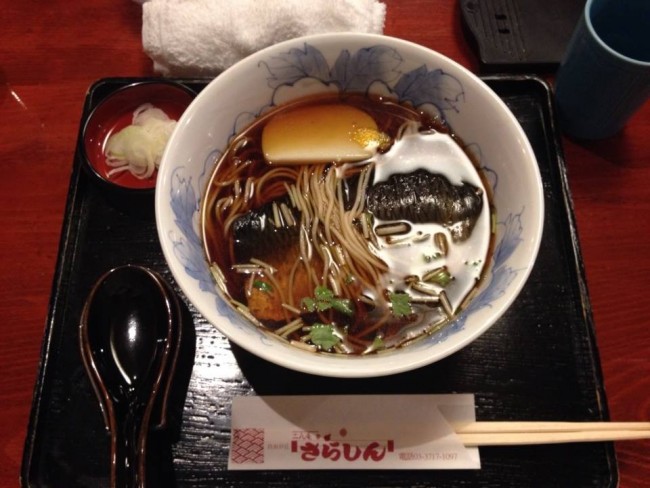
Kagoshima’s Many Soba Restaurants
During my exploration of Kagoshima prefecture I came to a picturesque village: Kinpo-cho, situated around 50 minutes drive from Kagoshima airport. Surprisingly, there are many soba places scattered and hidden around the wild and mountainous scenery of this little town. They are particularly unknown to foreign tourists, and therefore very attractive for culinary discoveries.
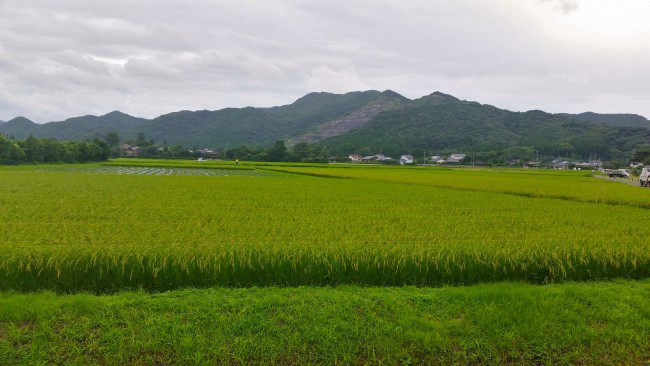
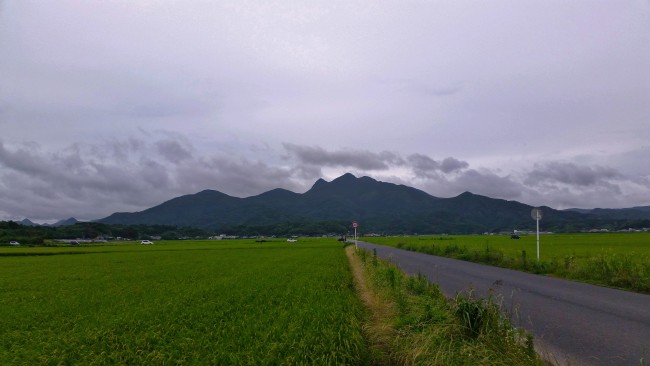
Handmade Soba in Kagoshima
One of these regional restaurants is Konohanakan (in Japanese only). This normal place is a combination of a grocery shop, small garden center and soba restaurant. I have to admit that looking at the front elevation of a rather long and unattractive building in the middle of nowhere, I had strong doubts if my appetite could be easily tamed. Nothing can be more misleading than appearance, though. In this so apparent place I ate some of the most delicious soba noodles – ever. Why? It is because they are homemade, organic, and made from local ingredients grown in Kagoshima. And I was the one who made them!
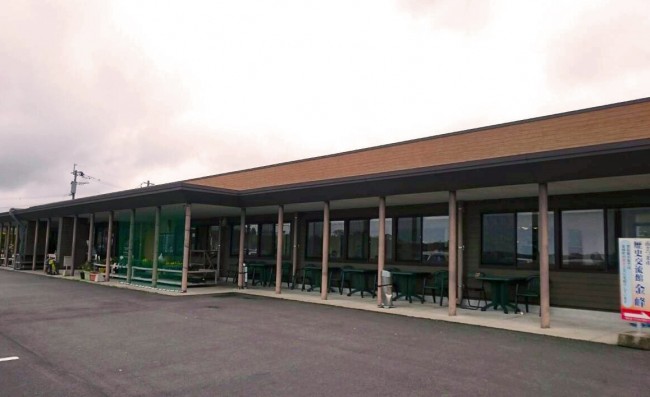
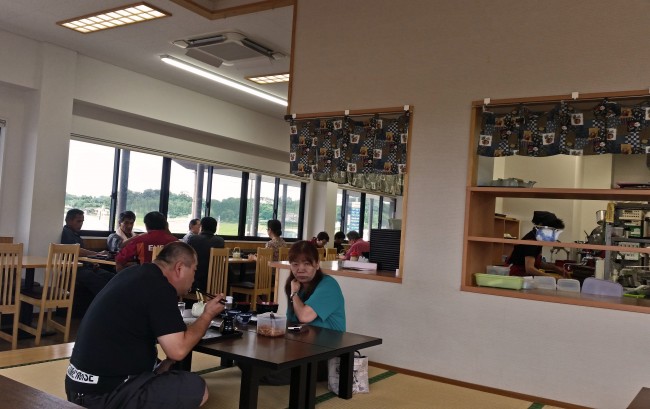
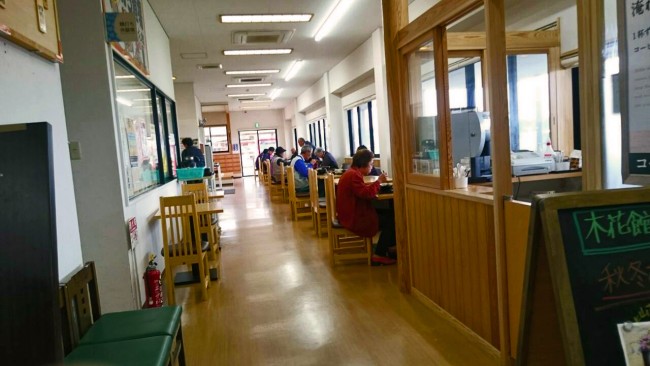
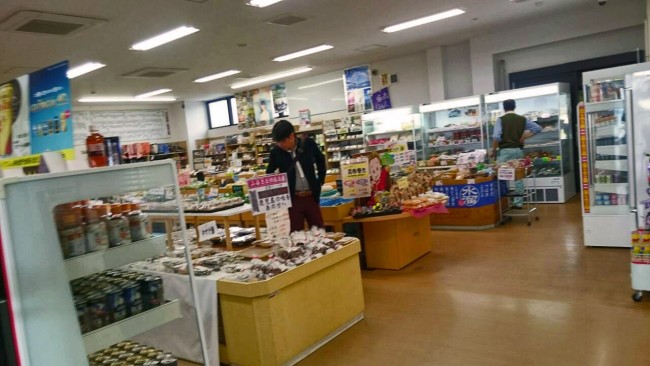
Make Homemade Soba Noodles in Kagoshima
For only 1000 Yen at Konohanakan, you can experience and learn how to make your own soba noodles. Trained and instructed by one of four lovely ladies whose cooking skills produce amazing dishes, you can almost become a soba master. And – you don’t need any Japanese language skills to understand how to do it. Following the particular actions and using non-verbal gestures is an enjoyable experience for both sides. You are able to truly appreciate the hard work and the process of making traditional soba in the real kitchen environment.
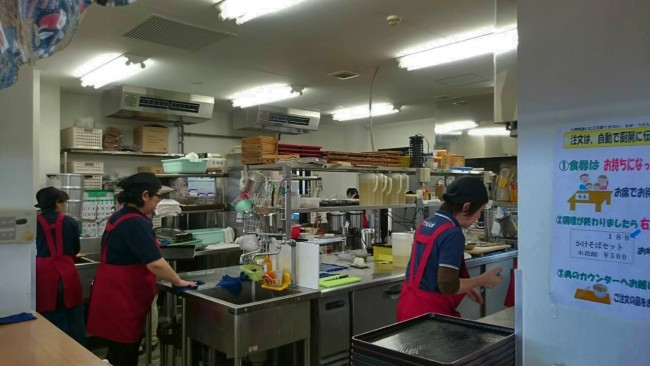
Ordering Soba in Kagoshima
If you are a person who enjoys eating rather than cooking you can simply order any soba set from a machine displaying pictures of particular dishes, in a sort of image menu with their price. It is easy and clear to use it. After inserting money and pressing the button with the set you want to eat you will get a numbered ticket. After sitting down comfortably in either the traditional tatami area or in the western banquet-style seating, you just need to wait few minutes for your order. Once it is done, you will see your order number on a small screen above the bar counter. You can then take it and enjoy the meal.
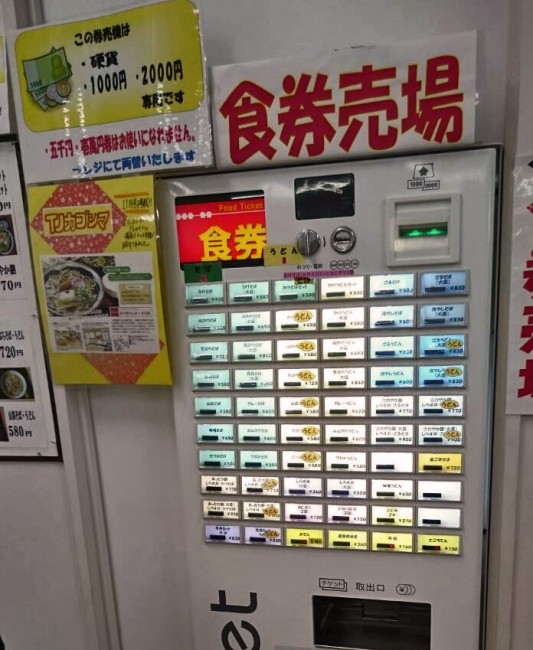
Konohanakan’s Soba Options
What distinguishes Konohanakan’s handmade soba noodles from any other places I have visited so far is not only the strong buckwheat taste but also the thickness of the noodles. Usually, these noodles are very thin and their taste is very subtle. Those in Konohanakan are very thick, yet tender and strong in flavor. Believe me or not – they are yummy!
There are many set options to chose from, starting at the basic kakesoba. It is a bowl of soba noodles in either a hot or cold sweet broth, covered with fresh spring onions. However, I would recommended something more sophisticated than this soba teishoku (set meal).
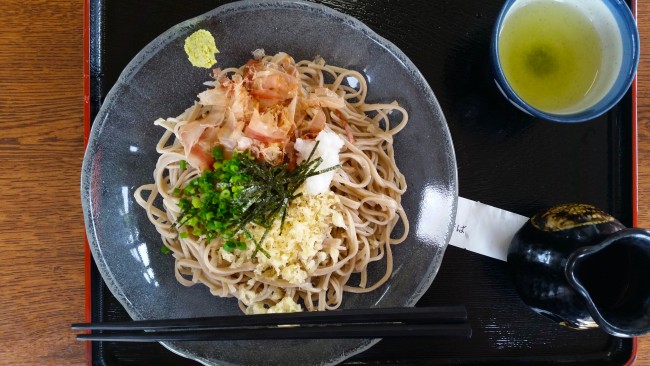
This set consists of soba noodles in a hot stock seasoned with spring onions, yamaimo (a sort of creamy sticky pate made out of Japanese potato, or imo) and tsukeage. Tsukeage is a traditional Kagoshima tapas-type side dish, which you can translate as dipped fried fish. I added extra side dishes: homemade seasonal pickles, rice topped with spring onions, tiny white fish (shirako) mixed with a raw egg and sweet rice dumplings (dango) for dessert. These options make this teishoku set the most popular meal among the local people.
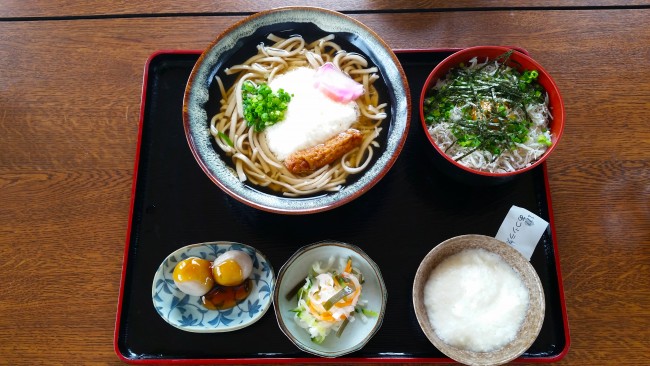
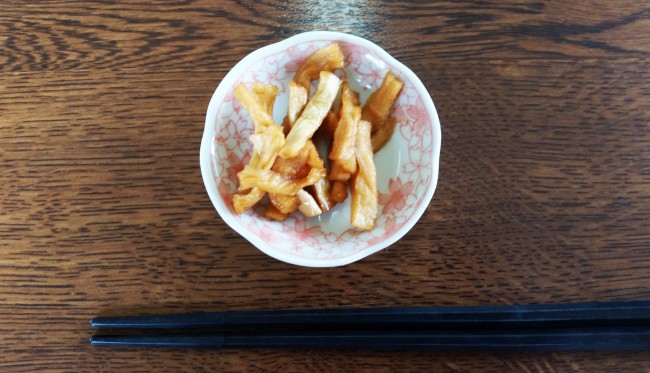
Soba Noodles and Organic Green Tea!
Another great thing about Konohanakan is that they serve a high quality organic Kagoshima green tea. This tea wraps thousands of fields in the neighborhood villages with its stunningly green leaves. And it’s free.
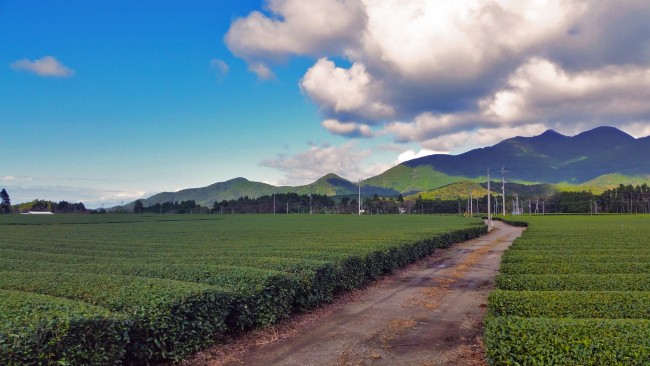
At the end, as my belly was fully satisfied, I did some little shopping in the adjacent shop and decided to come here again if I have a chance to be around. As a matter of fact, I have visited Konohanakan four times already. You can easily call it a destination.
Access:
The best way to get to Konhanakan is to rent a car. Alternatively, take a bus from Kagoshima airport (鹿児島空港) to Minamisatsuma city. After getting off at Kinposhishomae (金峰支所) stop you can take a pleasant walk through beautiful rice fields directly to Konohanakan. The cost of the ticket is 1700yen per person.
Timetable:
source: Synapse
[cft format=0]
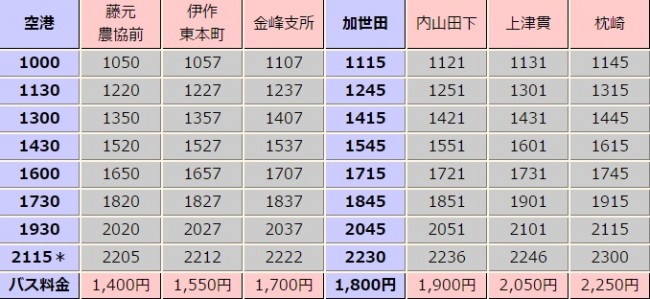
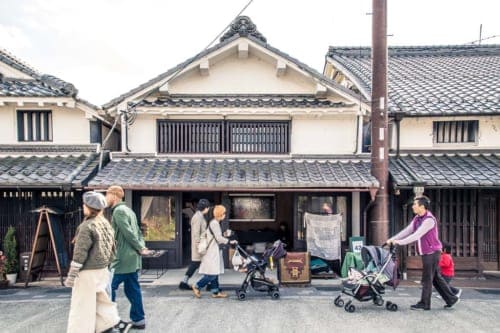
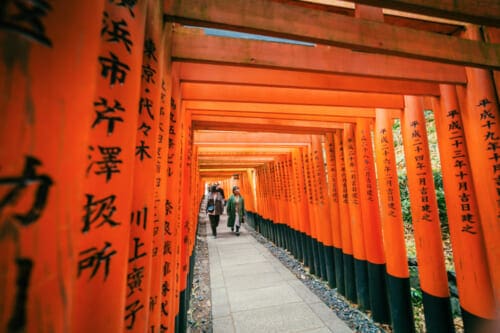

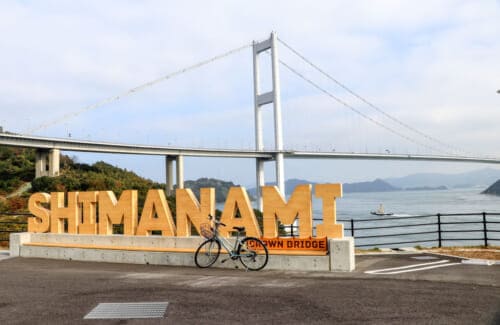
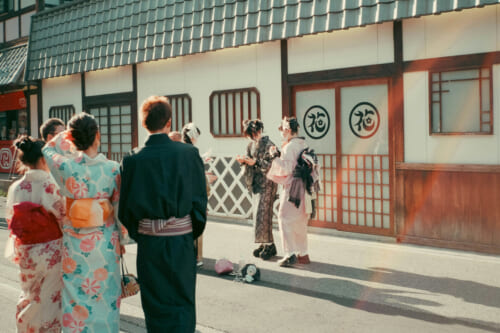
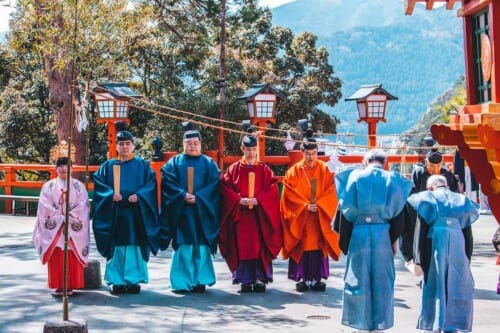


No Comments yet!